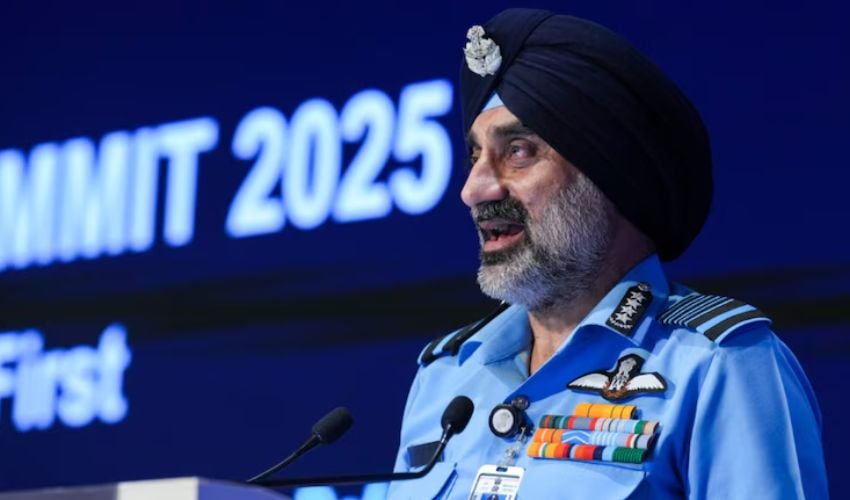India’s defence corruption has once again been exposed before the international community. This time, the truth came from within. Indian Air Force Chief, Air Marshal A.P. Singh, publicly admitted that India’s defence procurement system is broken.
Speaking to reporters, Air Chief Singh said that “the concept of timelines is dead.” No major defence project in India meets its deadline, he confessed. According to him, deals are signed, but weapons rarely arrive. Many systems under contract may never be delivered at all.
He referred to Operation Sandur as a serious warning. That operation, launched by India after groundless accusations against Pakistan, ended in embarrassment. The Pakistan Air Force retaliated with force. Reports claim six Indian fighter jets were shot down. Among them were the much-celebrated Rafale aircraft. This exposed deep weaknesses in India’s aerial defence.
Singh’s comments shocked many. He admitted that India’s defence leadership needs urgent change. “Modern warfare is changing fast,” he said. “Our approach must also evolve.”
The issue of India defence corruption is not new. But it is rare for such a high-ranking official to speak out. Singh’s statement has triggered serious doubts about the transparency and performance of India’s military planning.
He didn’t stop at delays and delivery failures. Singh pointed directly at corruption and poor judgment. He said weapons are promised, but never reach the forces. Despite this, agreements keep getting signed.
The Indian Air Chief’s remarks have raised alarm. Many now question how India can defend itself with such flaws. The failures of Operation Sandur only made things worse. According to reports, Pakistan’s successful strikes humiliated India’s air force. The loss of Rafale jets shocked defence observers worldwide.
With Singh’s open criticism, India defence corruption has become impossible to ignore. His rare honesty suggests deep internal problems. Defence experts are now demanding reforms.
India’s military now faces two enemies—external threats and its own broken system. Without fixing corruption and delays, many believe the country’s security remains at risk.
Singh’s words were clear. “The agreements are made, but weapons don’t arrive.” In a world of fast-moving conflict, that may be a fatal weakness.
The exposure of India defence corruption through such high-level confession has cast a long shadow on New Delhi’s claims of military strength. Only time will tell if these warnings lead to real reform.


